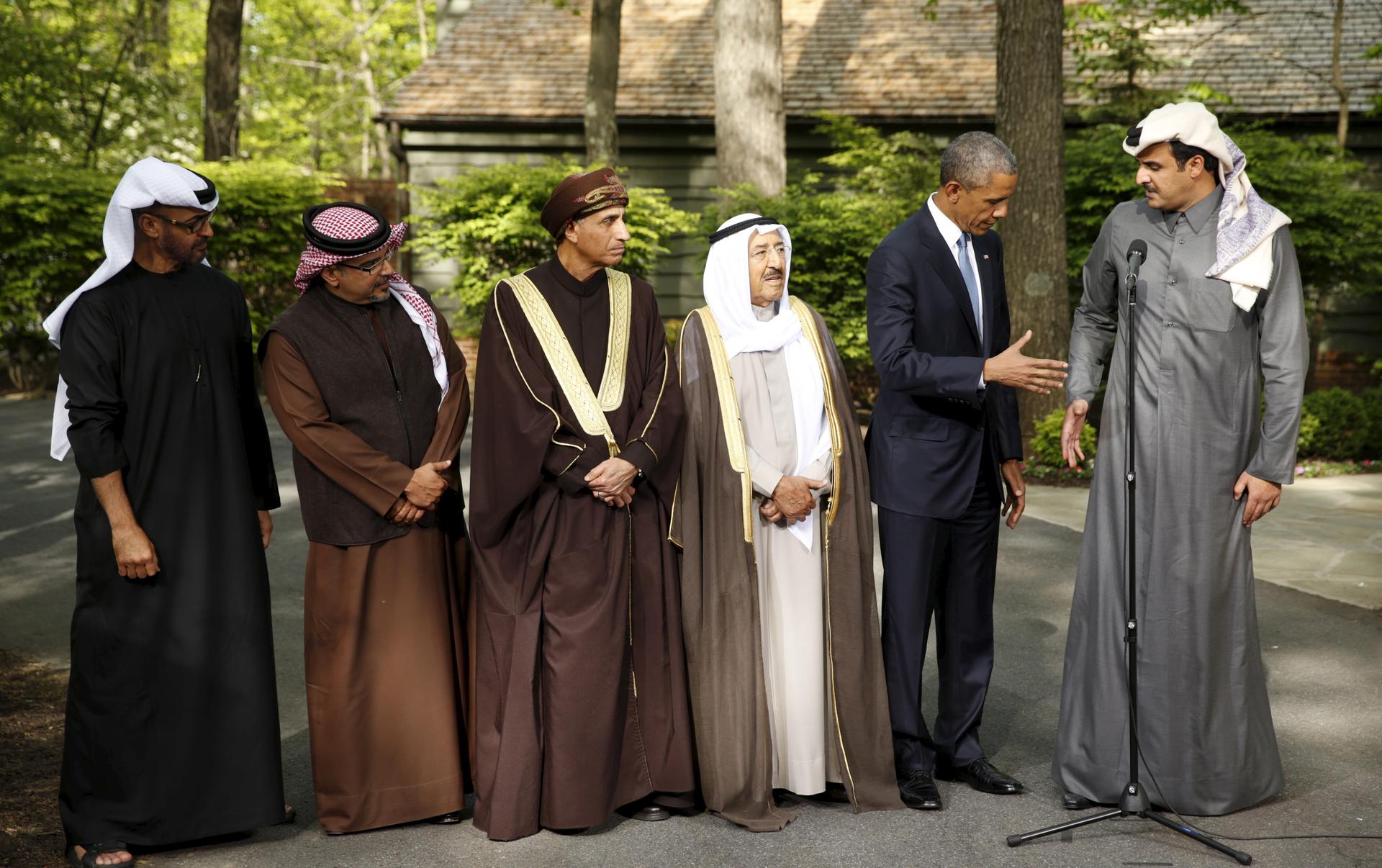President Barack Obama shakes hands with the Emir of Qatar, Sheikh Tameem bin Hamad Al Thani, while hosting the six-nation Gulf Cooperation Council at Camp David on May 14, 2015.
President Barack Obama hosted the leaders of six Persian Gulf nations at Camp David this week, but King Salman of Saudi Arabia, the closest US ally in the region, declined to show up.
Perhaps the Saudi king knew that no major defense pact would be penned at the meeting, nor would new advanced weapons systems sought by the Saudis be approved. Yet his absence was still widely seen as a pointed snub, something the kingdom denies.
But no matter what the meaning, Saudi Arabia and other Gulf countries won't walk away from the summit empty-handed. President Obama promised to "streamline and expedite" the flow of US weaponry into the region, including equipment crucial to the controversial Saudi-led air campaign against Houthi rebels in Yemen.
“Those items are likely to include new avionics equipment for F-15 and F-16 aircraft, upgraded radar systems that reach greater distances and identify smaller objects, and an increased flow of ordnance to Gulf militaries,” says John Hudson of Foreign Policy.
Among the weapons are JDAMs, the laser-guidance kits used by Saudi jets to guide the bombs dropped on targets throughout Yemen. Other American weapons have played a supporting role in the Saudi campaign, including, according to Human Rights Watch, cluster bombs from American manufacturer Textron deployed in the northern Houthi stronghold of Saada this month.
The US backing of the Saudi operation in Yemen comes at a political cost for Washington. One Yemeni tweeted this week that what American media usually calls "Saudi attacks" have a different name inside his country:
In April, President Obama told Thomas Friedman of the New York Times that he saw problems ahead for the Saudis and other Sunni allies of the US. “I think the biggest threats that they face may not be coming from Iran invading,” he said. “It’s going to be from dissatisfaction inside their own countries.”
Ironically, US weapons in the pipeline to Saudi Arabia might be exactly what the kingdom would use to suppress that dissatisfaction.
